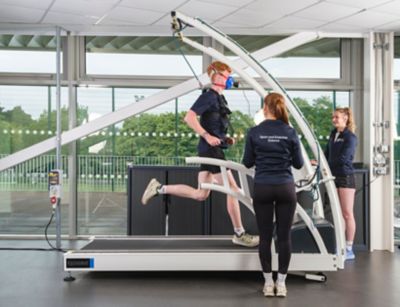*For full details including fees for part-time students and reduced fees during your time studying abroad or on placement (where applicable), see our fees page.
If you are a student from the EU, EEA or Switzerland, you may be asked to complete a fee status questionnaire and your answers will be assessed using guidance issued by the UK Council for International Student Affairs (UKCISA) .
Additional costs
As a student on this course, you should factor some additional costs into your budget, alongside your tuition fees and living expenses. You should be able to access most of the books you will need through our libraries, though you may wish to purchase your own copies. Please note that these figures are approximate and subject to change.
Scholarships and bursaries
The University of Nottingham offers a wide range of bursaries and scholarships. These funds can provide you with an additional source of non-repayable financial help. For up to date information regarding tuition fees, visit our fees and finance pages.
Sport scholarship scheme
Our range of sports scholarships are aimed at providing an unrivalled level of support to the brightest and best talents in the sporting world.
As well as a reputation for academic excellence, we have a history of sporting success and are passionate about supporting promising athletes during their time at Nottingham. Please check the sport website for further details, including eligibility criteria.
International students
We offer a range of international undergraduate scholarships for high-achieving international scholars who can put their Nottingham degree to great use in their careers.
International scholarships
Tuition fees 2026/27 (UK undergraduate students)
This is the UK undergraduate tuition fee for the academic year 25/26. It may increase for the academic year 26/27 and we will update our information once we have received confirmation of the fee from the UK Government.
For full details including fees for part-time students and reduced fees during your time studying abroad or on placement (where applicable), see our fees page.
If you are a student from the EU, EEA or Switzerland, you may be asked to complete a fee status questionnaire and your answers will be assessed using guidance issued by the UK Council for International Student Affairs (UKCISA) .
Additional costs
As a student on this course, you should factor some additional costs into your budget, alongside your tuition fees and living expenses. You should be able to access most of the books you will need through our libraries, though you may wish to purchase your own copies. Please note that these figures are approximate and subject to change.
Scholarships and bursaries
The University of Nottingham offers a wide range of bursaries and scholarships. These funds can provide you with an additional source of non-repayable financial help. For up to date information regarding tuition fees, visit our fees and finance pages.
Sport scholarship scheme
Our range of sports scholarships are aimed at providing an unrivalled level of support to the brightest and best talents in the sporting world.
As well as a reputation for academic excellence, we have a history of sporting success and are passionate about supporting promising athletes during their time at Nottingham. Please check the sport website for further details, including eligibility criteria.
Home students*
Over one third of our UK students receive our means-tested core bursary, worth up to £1,000 a year. Full details can be found on our financial support pages.
* A 'home' student is one who meets certain UK residence criteria. These are the same criteria as apply to eligibility for home funding from Student Finance.





